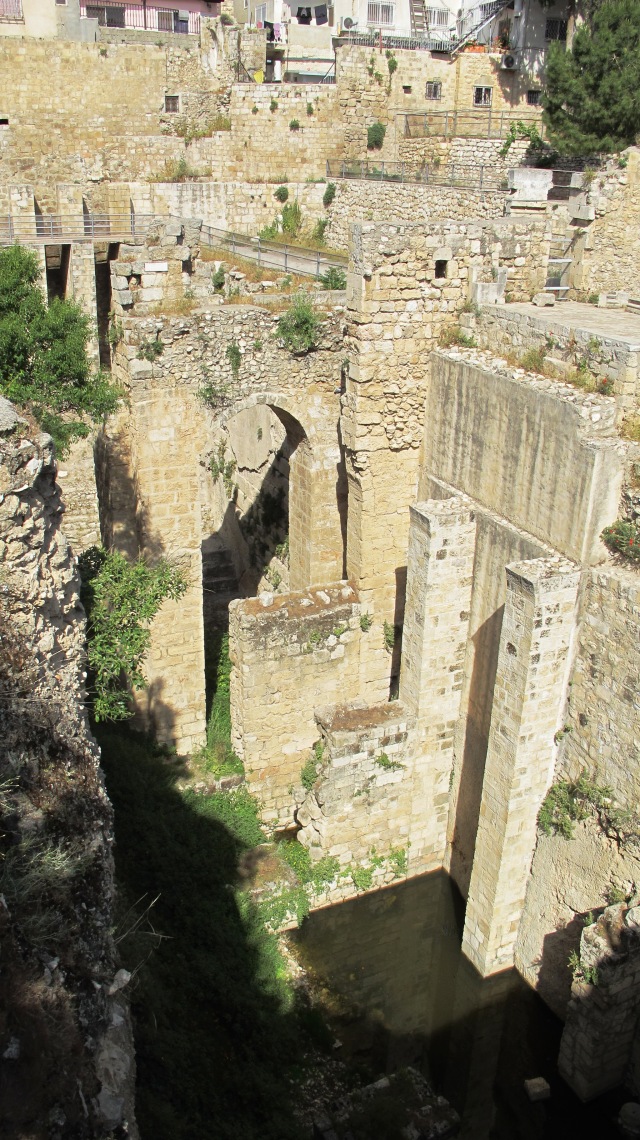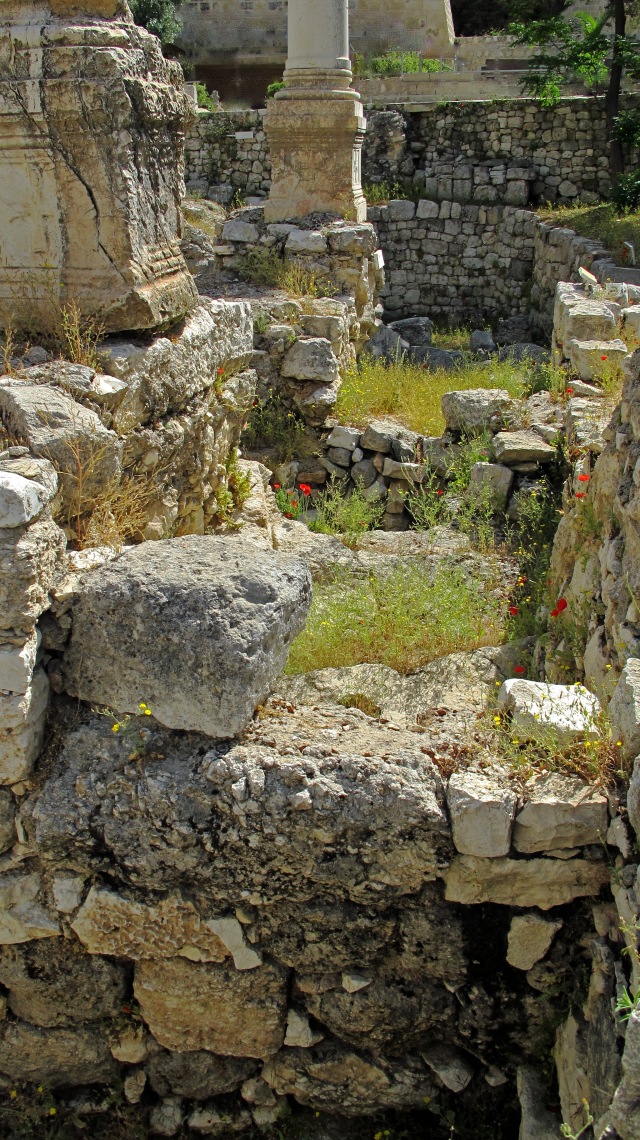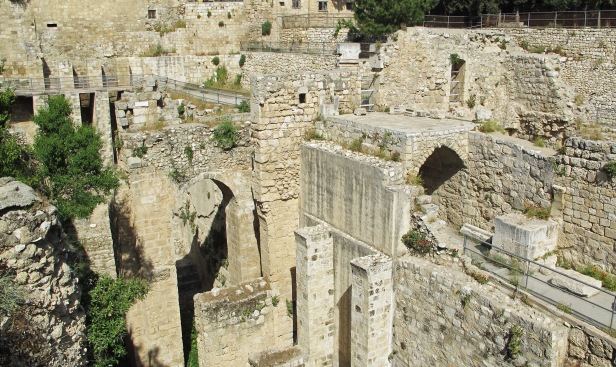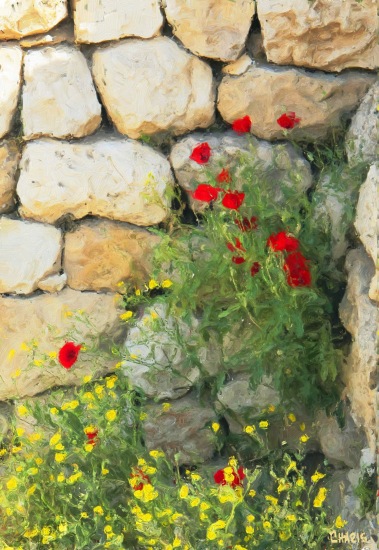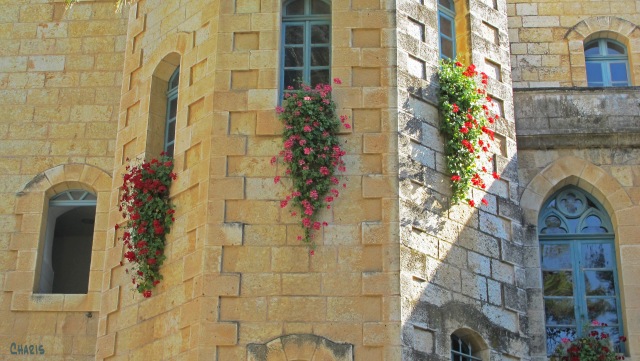
A chapel and garden still standing from the time of the Crusaders marks the traditional place in Emmaus where two of Jesus’ followers experienced one of the greatest eye-openings in history. We were welcomed by a kind smiling Benedictine monk with a warm honey-smooth tenor voice. As he sang and invited us to join him the vaults filled with praise.
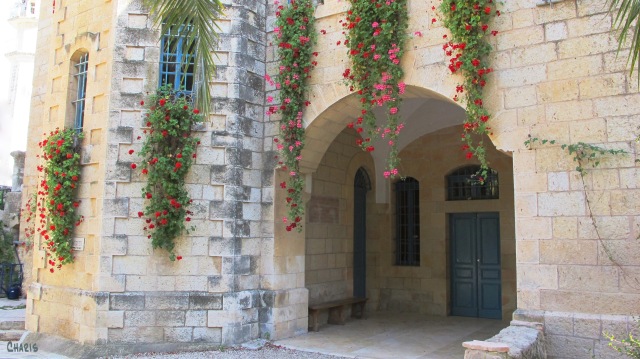
Anyone who has had to adapt to new eyeglasses will understand what I am saying, particularly if the change is a big one, like the switch from regular glasses for myopia to bifocals or progressive lenses. New glasses may give you improved vision, but first they will give you a three-week headache.
Anyone who has had their world shaken by the unexpected, especially unexpected tragedy, knows the ambivalent feelings of not wanting to hear the story of the event again and yet feeling the need to compulsively give an account of everything that happened to anyone who shows the least bit of interest. If there is more than one witness everyone will need to say where they were and how they experienced the accident, the surprise verdict, the sudden destruction, the unexpected death. There seems to be a drive in folks to make sense of things. All sorts of floated theories birth platitudes.
I imagine this is what the two disciples leaving Jerusalem for the village of Emmaus were doing, after the news of Jesus’ crucifixion and rumours of his missing body circulated. When the stranger traveling the same direction joined them and asked what was up they immediately launched into their versions of what happened to this Jesus, this miracle-working man from the north who they hoped would free them from political oppression, and their profound disappointment in the way things turned out. No doubt the short-sightedness of the government and religious establishments received some scathing criticism -but quietly. No doubt they were also frightened about the implications for his followers. Perhaps that is why they were in a hurry to leave the city.
The stranger first asked some leading questions, then reminded them of things the prophets had written, which they had probably set aside as for another time in the future.
As I stood under the vaulted ceiling of the chapel I thought about the roller-coaster of emotion they have felt when Jesus opened their eyes and they realized who he was, I mean Who He actually was! That must have been the grandest paradigm-shifting moment of all time! They got it! God’s plan for the ages was much greater than their own hopes.
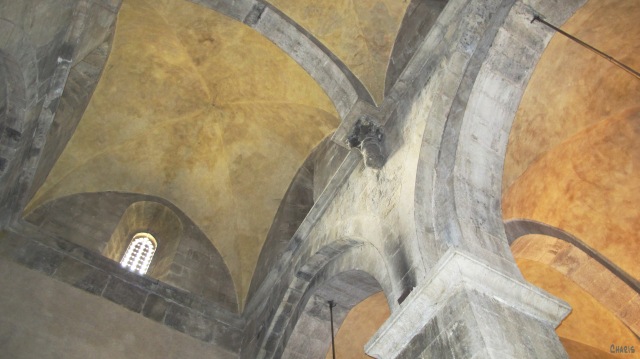
“Were not our hearts burning within us as he spoke?” they asked each other as incredulousness turned to praise. On a deep level, in their spirits, before they knew, they somehow knew.
I had a moment like that this week. I was telling someone that the Sea of Galilee or Lake Kinneret, as it is called now, reminds me so much the Okanagan in central B.C., except that it’s wider. It is also surrounded by orchards and hills. (Although I’ve never seen date or mango groves in Canada.) We talked about how most of Jesus’ outdoor classroom for his followers was within a thirteen mile stretch on the lake.
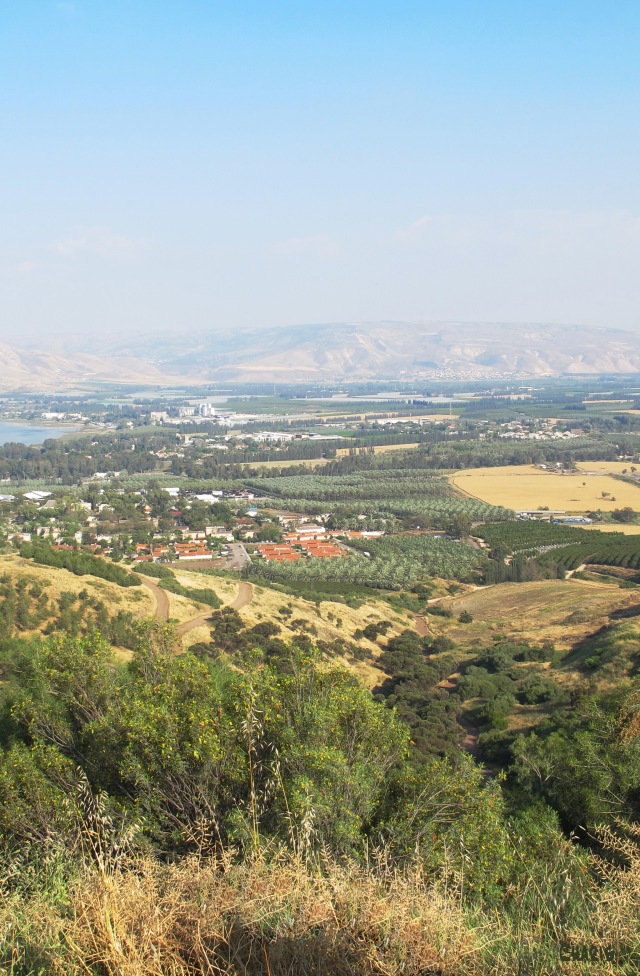
I went away thinking about Jesus calming the storm on the lake.
We had just come out of a sudden unexpected crisis when it looked like someone very dear to us was going to die, and of course we rehashed events and told everyone who would listen the story. Honestly, I’ve often thought it would be easier to be in the hospital bed myself than to see my children or grandchildren suffer. My children and their spouses and my grandchildren are the loves that I hold closest to my heart. Many times I have come to the point of handing them back to God, because even though family is such a high priority I want God to be the highest priority. Then I take them back; it’s a struggle sometimes. This time God took me up on my offer.
The Lord heard our cries and calmed the storm, but it wasn’t until this week I realized in both the disciples’ situation and ours, the real miracle wasn’t that Jesus restored peace to the waves that threatened to swamp us, (although that was absolutely marvelous!!!!) it was that God himself was in the boat with us. He so desired to communicate His love that He laid down everything and came as a human being to go through everything we do -with us. He never left us to work it out on our own.
I began to think about the place of suffering. Our son-in-love helped me understand when he spoke about his perception of his experience. Mostly he just tears up and talks about how much deeper the love of Jesus is than he ever imagined. I so admire this man who has been through hell physically, yet has absolutely no bitterness.

Then the Lord spun my head around by reminding me of the verse I have quoted so often: Yet indeed I also count all things loss for the excellence of the knowledge of Christ Jesus my Lord, for whom I have suffered the loss of all things, and count them as rubbish, that I may gain Christ and be found in Him, not having my own righteousness, which is from the law, but that which is through faith in Christ, the righteousness which is from God by faith; that I may know Him and the power of His resurrection, and the fellowship of His sufferings, being conformed to His death, if, by any means, I may attain to the resurrection from the dead. ( Philippians 3:8-11)
that I may know him and the power of His resurrection and the fellowship of his sufferings
He was willing to enter our suffering, and to relieve it, that we might have a glimpse of what the Father is like by calming the storm and healing our diseases. But when we are willing to lay down everything and enter into his suffering in order to know him, he pours out a level of love and grace and reveals himself in a way that is like suddenly realizing the Creator of the Universe is actually the One breaking bread at our own kitchen table.
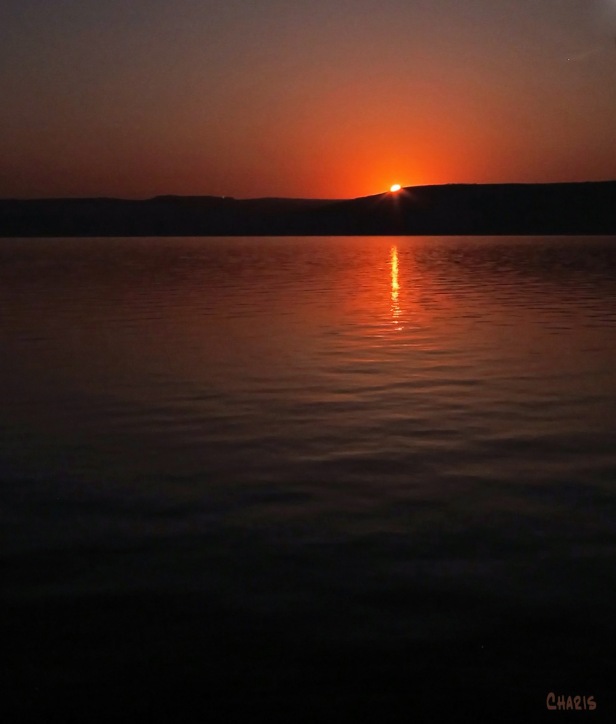
Therefore, having been justified by faith, we have peace with God through our Lord Jesus Christ, through whom also we have access by faith into this grace in which we stand, and rejoice in hope of the glory of God. And not only that, but we also glory in tribulations, knowing that tribulation produces perseverance; and perseverance, character; and character, hope. Now hope does not disappoint, because the love of God has been poured out in our hearts by the Holy Spirit who was given to us. (Romans 5: 1-5)
Hope does not disappoint. God is good. God is love.



